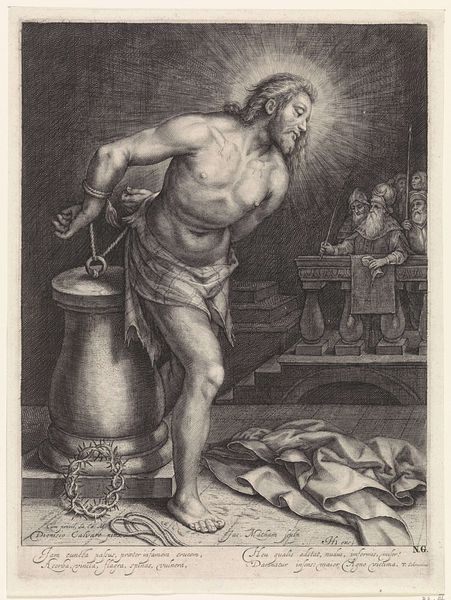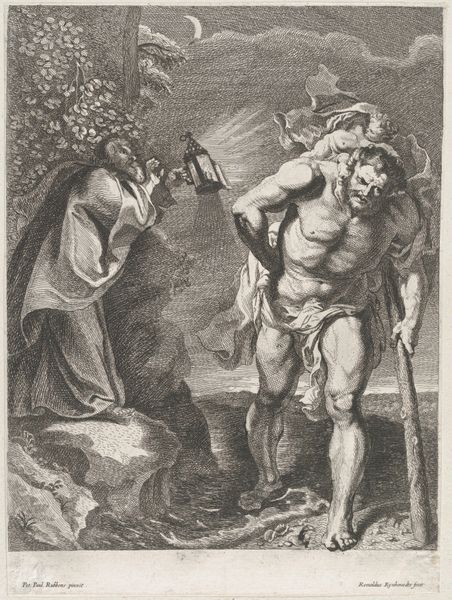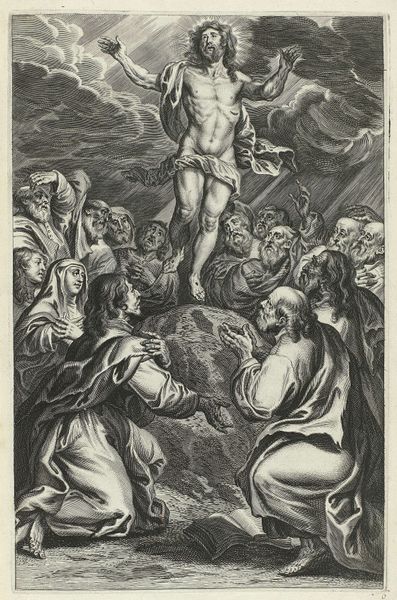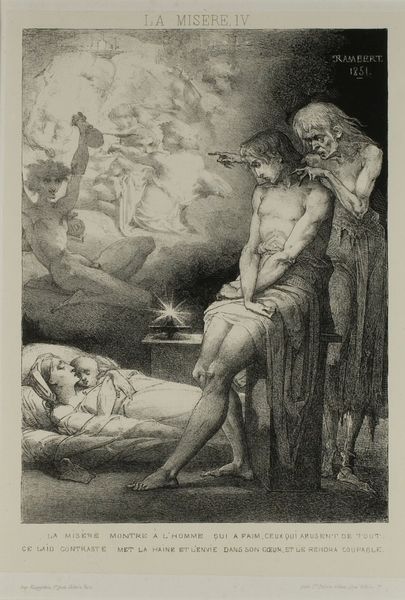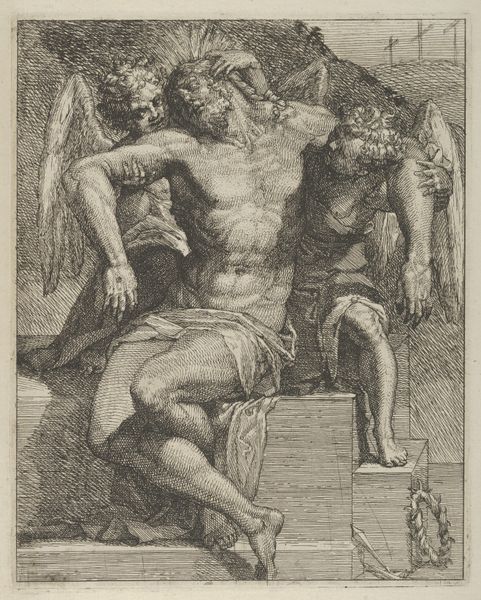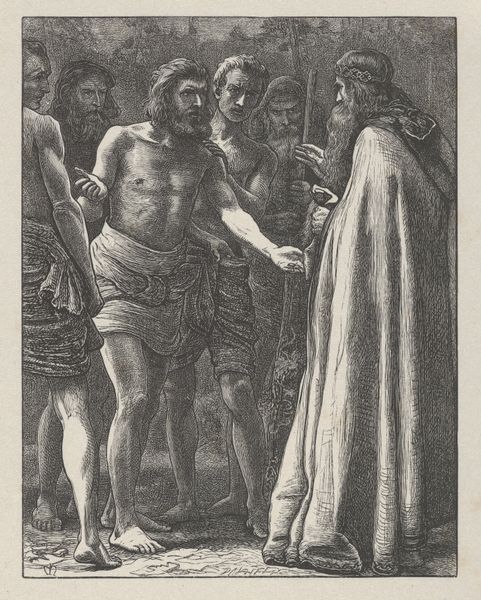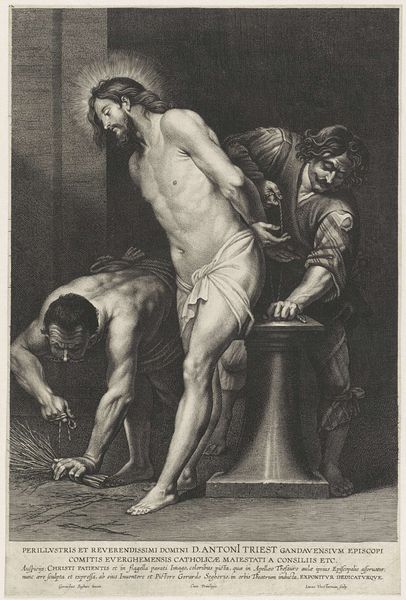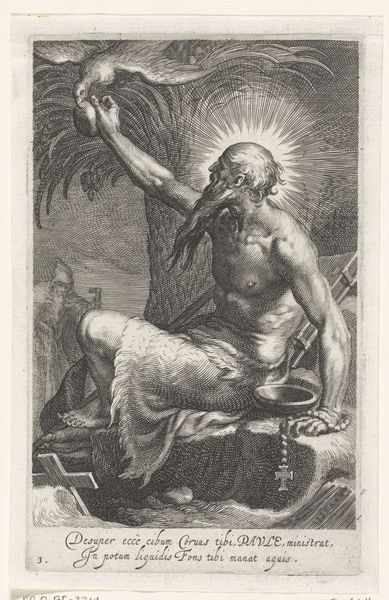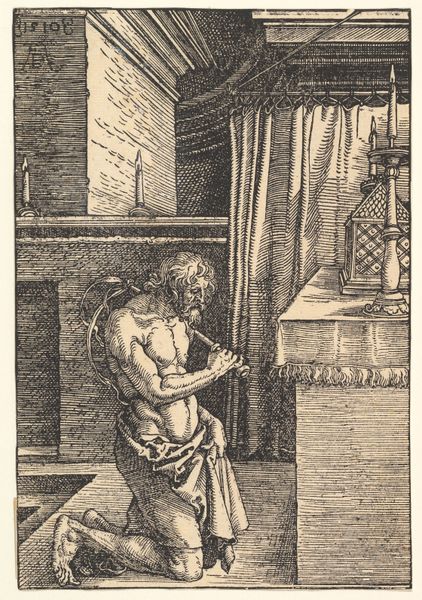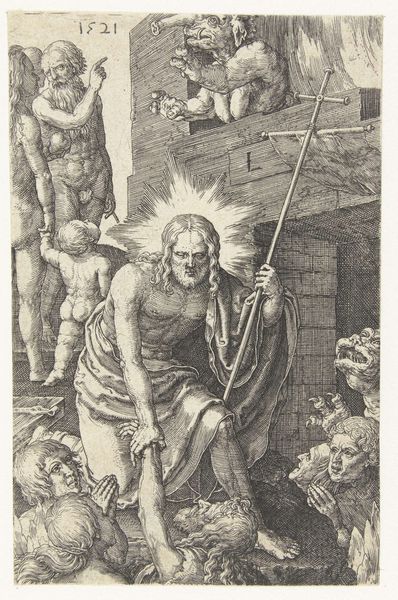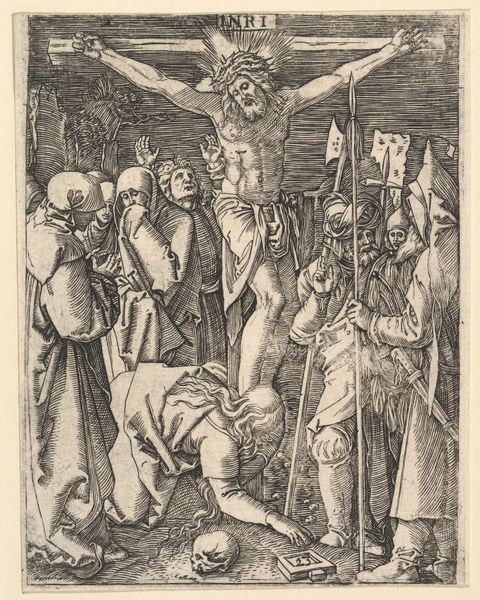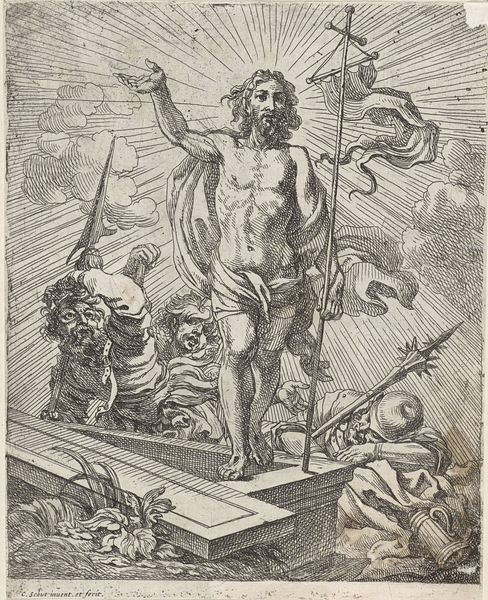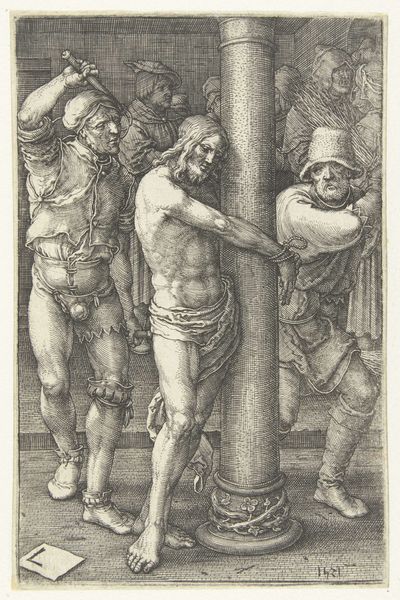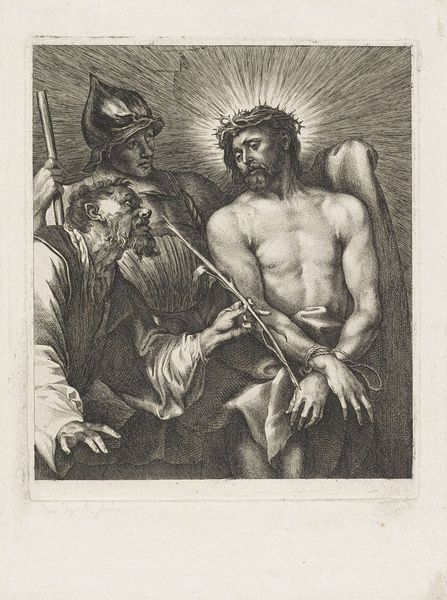
print, engraving
#
portrait
#
baroque
# print
#
figuration
#
history-painting
#
engraving
Dimensions: 290 mm (height) x 213 mm (width) (bladmaal)
Editor: So, this engraving is "Jesus ved s\u00f8jlen (efter hudflettelsen)" – "Jesus at the Column (after the Flagellation)" – made in 1612 by Jacob Matham. The starkness of the figure against the detailed background really gets to me. What strikes you when you look at this print? Curator: The overwhelming aspect is, of course, the production of the image itself, and how it functions as a commodity. Matham wasn't witnessing this event; he's replicating a visual language already circulating, right? So, what means of production and dissemination are at play here? Editor: Well, it’s an engraving, so multiples could be made and sold. Was printmaking a lucrative business then? Curator: Mass production via engraving created a demand. Devotional images like this offered individuals a relatively inexpensive way to access religious narratives and even feel a sense of spiritual connection. How does that contrast with, say, commissioning a unique painting? Consider who had access to this imagery and what social structures underpinned it. Editor: So, its value is less about unique artistic expression and more about its role in a wider system of belief and trade. The skill is in its replication, making accessible otherwise inaccessible ideas to a mass market. Is that a fair analysis? Curator: Precisely. Think of the engraver's labor. Matham isn't creating ex nihilo, but acting as a skilled artisan reproducing existing iconography within a market driven by specific spiritual and social needs. Does considering the print as a manufactured object change how you view its inherent "holiness"? Editor: It’s fascinating to see how even deeply spiritual imagery is shaped by material conditions and market forces. I’ll definitely think about the labor behind the image in future works we analyze. Curator: Indeed. Examining the modes of artistic production encourages an understanding that no image exists outside economic, social, and labor relations.
Comments
No comments
Be the first to comment and join the conversation on the ultimate creative platform.
